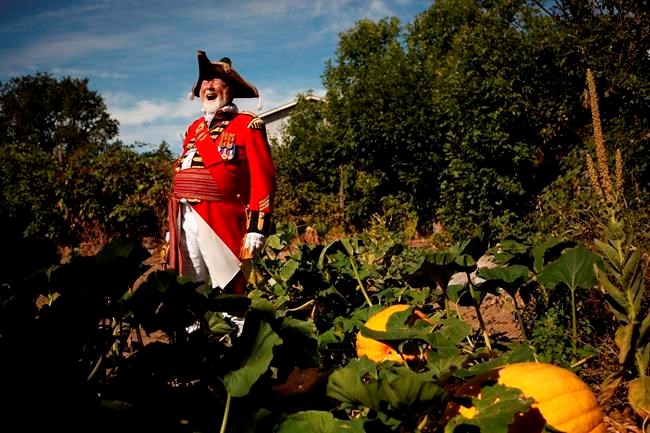DUNCAN, B.C. — A Vancouver Island city is putting out a call for a new kind of ambassador after deciding it will no longer send a town crier to greet visitors or represent the community at events.
Duncan's town crier position has been retired as the city re-evaluates practices and symbolism of the past, said Mayor Michelle Staples, adding the community is on a journey to find a new voice.
Duncan has had a town crier since 1995, but the tradition of an official community messenger dates back to biblical times.
In centuries past in England, an elaborately dressed crier often carried a hand bell, shouting "hear ye, hear ye" to attract attention before calling out a proclamation. The crier also became a symbol of the arrival of European settlers in North America.
"Is a town crier reflective of our community in 2021?" asked Staples. "Council decided it isn't reflective of who we are at this time. Our community has changed a lot over the last 100 years."
Staples said Duncan does not have a timeline to find a new ambassador, but the process will undergo widespread community consultation starting this fall.
She said the city will invite the Cowichan Tribes, which has about 5,000 members in the Duncan area, to participate.
Duncan, known as the City of Totems, has 40 totem poles located within city limits. No one from the Cowichan Tribes was available for comment.
"We have to walk on this path together," Staples said. "We're going to reach out and ask them. We really want to open up the conversation. We want to hear back from people."
Duncan's newly unemployed town crier said his proposal to keep the position as a joint crier-ambassador role was rejected by council.
Ben Buss said his retirement came as a surprise.
"I didn't want to be made redundant," he said. "It's rather sad we have to throw it out completely."
Buss, 78, said he considers town criers part of a honourable tradition that gives communities a sense of place and history.
"They are bringers of goodwill," he said. "They will facilitate the openings of fairs. They will head up a parade. It's colourful. It has historical implications. It's a very broad-ranging, wide, very difficult to pin down sort of job."
Buss recently stood in his vegetable garden and rang his brass bell loudly while entertaining neighbours with a booming, mock endorsement of a local grocery market.
He dressed for the occasion, wearing his immaculately tailored town crier's uniform -- a bright red coat festooned with medals, white pants, a frilly-collared shirt and custom-made, square-toed black boots.
"Ho ye, ho ye!" Buss yelled. "Welcome to Burkey's Corner. Burkey's Corner in the sunny Cowichan Valley. Come, come to Burkey's Corner and enjoy life."
Buss said he has represented Duncan at international town crier competitions in New Zealand, the United States and in Kingston, Ont., and has performed ceremonies at gravesites of Canadian soldiers buried in Hong Kong.
While Buss said he understands the community's need to explore its past and consider the future, especially with regards to Indigenous people, he doesn't see the need to drop the town crier.
Since his retirement, other town criers from Canada and overseas have sent him messages of support and concern for their own futures, he said.
"I've yet to find the injustices of town criers," said Buss. "Why do we need to change? You don't have to change for the sake of change."
Staples said the town crier represents an old tradition and Duncan has moved beyond its past.
"It's not out of disrespect for what that tradition meant," she said. "We're in Duncan, Cowichan territory, in 2021. How do we want to represent ourselves now? It's not about snubbing anyone at all."
This report by The Canadian Press was first published Aug. 8, 2021.
Dirk Meissner, The Canadian Press



